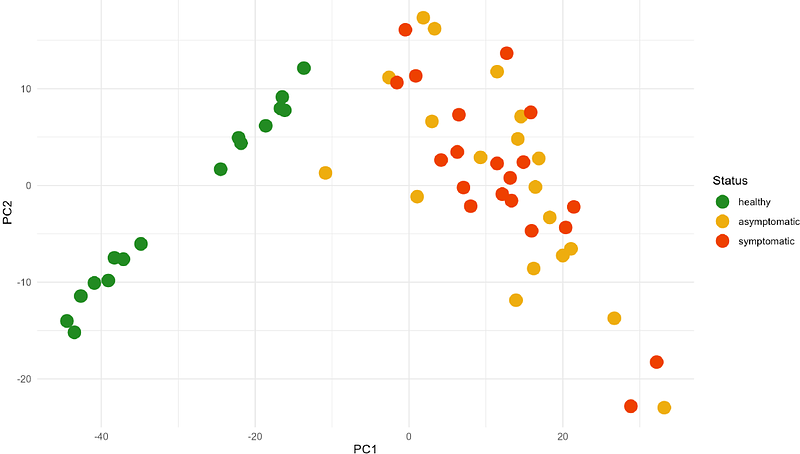Bioprospection of culturable soil-borne bacteria with biotechnological potential for use in priming defense

Bioprospection of culturable soil-borne bacteria with biotechnological potential for use in priming defense
Gonzalez - Arriagada, M.; Ortega, J.; Torres, J.; Sulbaran, Y.; Flores, S.; Bastidas, B.; Montero-Morales, P.; Aceituno-Valenzuela, U.; Alvarez, A.; Contreras-Soto, R.; San Blas, E.; Latorre, M.; Pizarro, L.
AbstractBackground: The plant root microbiome is central to disease resistance and stress resilience. In intensive tomato production, prolonged agrochemical use disrupts microbial communities, reducing their protective functions and enabling pathogen establishment. Methods: We integrated 16S rRNA amplicon sequencing with culture-dependent isolation to analyze microbiome shifts in tomato plants across healthy, asymptomatic, and symptomatic states in a nematode-infested field. Network analysis and machine learning were used to identify key taxa. Isolates were screened for plant growth-promoting rhizobacteria (PGPR) and nematicidal activity, and selected strains were evaluated in planta under pathogen challenge. Results: Microbial diversity and community complexity declined with disease severity. Gaiella occulta emerged as a potential biomarker of plant health. From 223 isolates, 45 strains exhibited PGPR and nematicidal traits. Ten were tested in tomato plants, where treatments conferred systemic resistance to Pseudomonas syringae pv tomato without fitness cost. Four strains, primarily Pseudomonas and Bacillus, triggered immune priming, enhanced root development, and three of them were co-isolated from a single asymptomatic plant. Conclusions: Our findings highlight the potential of targeted bacterial consortia to restore microbiome balance and activate immune responses in tomato. These results support the rational design of synthetic microbial communities (SynComs) for sustainable, microbiome-based crop protection